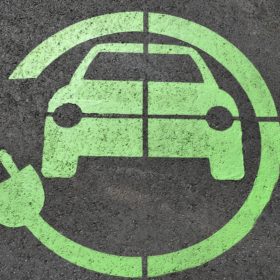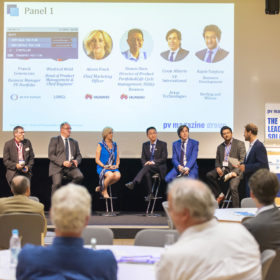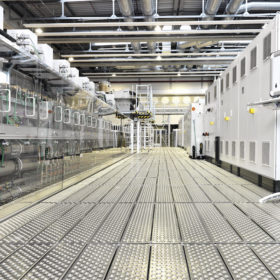Repsol, Enagás join forces to produce hydrogen from solar energy
Two months after announcing its intention to turn to renewables, the Spanish oil giant has for the first time formed a technological tie-up that integrates a partner into the company’s value chain.
UK based scientists demonstrate ‘charge funnels’ to boost solar efficiency
A team of researchers from the University of Exeter has demonstrated a technique which creates ‘charge funnels’ within certain semiconductor materials. The researchers state that the technique could eventually lead to the development of PV cells with better than 60% efficiency.
EU commits €578 million for Iberian-EU energy market integration
Spain, Portugal, France and the European Commission have signed a deal to increase the capacity of the energy interconnection between the Iberian Peninsula and Europe. Currently, the interconnection capacity is 6,000 MW and, thus, far from the 15% goal set in 2015.
Germany prevents China from joining 50Hertz
The Chinese state-owned State Grid Corporation of China has been attempting to acquire a 20% stake in German transmission system operator, 50Hertz for some time now. After the intervention of Germany’s Federal Government, however, this share will now go to domestic development bank, KfW.
Total looks to Chinese EV market
Oil and gas company Total has announced it will work alongside Shanghai-based NIO – the world’s inaugural Formula E champion – to develop products for a potentially huge electric vehicle marketplace in the populous Asian nation.
Imec hits 27.1% on perovskite/silicon tandem cell
Belgian research institute, Imec has announced the achievement of 27.1% efficiency on a perovskite/silicon tandem cell, providing further evidence of the technology’s potential to provide a low cost efficiency boost to existing PV technology.
Moixa powers Scilly season
The storage system supplier is providing its technology to the Isles of Scilly as part of an ERDF-funded project to meet the remote islands’ energy demands more cheaply and cleanly. Until now islanders used fossil fuels and electricity from mainland Britain at high tariffs, prompting energy poverty for many.
Video: Future PV Roundtable @ Intersolar Europe 2018
Peijun Shen of Huawei discusses integrating bifacial modules into PV power plant projects from the Future PV discussion at this year’s Intersolar Europe. Bifacial technology is making leaps and bounds, and suppliers up and down the value chain have to deliver new technologies and solutions to pave the way for the next steps in PV systems.
Italy: Glass to Power crowdfunds €2.25 million, plans solar window fab
Italy-based Glass to Power has raised €2.25 million via crowdfunding to advance its plans for the roll out of an industrial production line for its transparent solar PV windows. The product is expected to be marketed in 2019.
The weekend read: CIGS is back, back again
Stability and reliability, partial transparency, monolithic deposition onto flexible substrates, aesthetically pleasing appearance, applicability in roll-to-roll production, superior temperature coefficient, potential in tandem applications, and suitability for BIPV: The list of advantages that CIGS technology offers is well established and lengthy.









